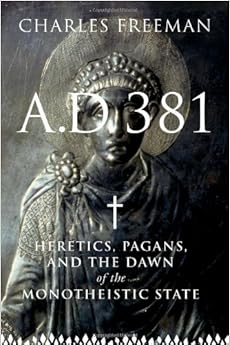“If only God were worshipped, there would not
be dissensions and wars. For men would know that they are the sons of one God.”
– Lactantius.[1]
“No
one will make them afraid.” More beautiful words have rarely been uttered. There
will be worship instead of war and wickedness, bounty rather than bribery and
bloodshed, peace in place of perversion.
There
is nothing pleasant surrounding the prospect of judgment or impending doom. But
at this time, the proclamation of justice against civil authorities and spiritual
leaders of the nation[2]
would have been welcome news. Micah
posits to deliver the words of Yahweh, making accusations against the rich who
have acted oppressively by coveting, seizing fields, houses and inheritance
(2:2); tearing the skin off (3:2); eating the flesh and breaking the bones
(3:3) of the people. This is “the sin of abusing one’s fellow man.”[3] Unfortunately,
it was not the only time when the leadership of Israel was convicted of this
charge.[4]
Yahweh in this oracle is portrayed in an “old
tradition of the theophany of the divine warrior,”[5]
having been roused to action due to the injustice, cruelty, and abominations
done by a select group.[6]
Finally, because of God’s action, peace and salvation would come to the troubled
remnant of Israel.
Commentators have suggested these visions
and others similar (Isa 2; 60) reflect the culmination of the ages, or eschaton
where all wars will cease. David Leiter observed that such outlining is often perceived
as having “little or no practical implications for our current age. . . . The
vision indeed had contemporary implications for Israel and if taken seriously
can also have implications for our world today.”[7] Yet,
there are social critiques within this oracle that are able to be applied to various
situations in the present, as well as hope for peace in the future.
In
consideration of the warrior imagery, Scott Holland noted that we are more
comfortable with a God who fits our own ideology and are sometimes willing to
substitute divine “otherness” for our own system of ethics. “We tend to make
God in our image and thus in the process make ourselves like God.”[8]
If a religious group becomes violent about their religion, it is possibly because
their violent perspective has created a god to meet that desire. I conclude – from a meta-narrative perspective – that ultimate redemption and
reconciliation is the final objective. However,
the way God goes about that is not always clear. [9]
Ultimately, we must leave vengeance up to
God, “precisely because God has the prerogative to give and take life that we
do not have.”[10]
These words of Scott Holland have stuck
with me since I first read them: “Could it be that because Yahweh is a warrior,
we can be a people of peace?”[11] Willard
Swartley, also citing this statement, eloquently explained that attributing
violence to God is an inaccurate and wrong accusation from a Scriptural perspective.
It undermines God’s moral character and redemptive intentions as well as
confuses the perversion of human violence with God’s divine prerogative to establish
justice. It can also depend on how "violence" is defined. If it entails a violation of a norm, Swartley would argue that for Christians the terms should not apply to God, who is the transcendent source of norms. Nevertheless, judgment characterizes the sovereign and holy God, who punishes
humanity for their sins expressly to end human violence.[12]
Micah’s promise of restoration and deliverance
is one of hope, and relevant to all those who long for peace and justice to be the
order of the day.[13] Embedded
within the purpose of prophetic oracles is the call for repentance. If
repentance occurs, right relationship with God is restored, divine judgment can
be averted and peace will be the result.[14]
[1]
The Divine Institutes, 5.8.66 (ANF 7.143).
[2]
C. F. Keil and F. Delitzsch,
Commentary on the Old Testament, 10
vols. (Peabody, Mass.: Hendrickson Publishers, 2011), 10:305
[3]
Ralph L. Smith, Word Biblical Commentary:
Micah-Malachi, vol. 32 (Dallas: Word, Incorporated, 2002), 5.
[4]
E.g. Isa 3:12-15; 56:11-12; Ezek 13; 22:24-31; 34; Jer 10:21; 12:10-11; 23:1-5;
50:6-7; Zech 10:2-3.
[5]
John J. Collins, Introduction to the Hebrew Bible: Second Edition (Minneapolis, MN.: Fortress Press, 2014), 340.
[6]
2:1–2, 8–9; 3:2–3, 9–11; 7:2–6.
[7]
David A. Leiter, Neglected Voices: Peace
in the Old Testament (Scottsdale, PA.: Herald Press, 2007), 72.
[8]
Scott Holland “The Gospel of Peace and the Violence of God,” Seeking Cultures of Peace: A Peace Church
Conversation, ed. Fernando Enns, Scott Holland, and Ann Riggs (Telford,
PA.: Cascadia Publishing House, 2004), 141.
[9]
N.T. Wright, Surprised by Hope (London:
SPCK, 2007), 206.
[10] Holland 2004, 141.
[11]
Ibid., 144.
[12]
Willard M. Swartley, Covenant of Peace: The Missing Peace in New Testament
Theology and Ethics (Grand Rapids, MI: Wm. B. Eerdmans Publishing Co.,
2006), 395.
[13]
Elelwani B. Farisani, “Micah” The
Africana Bible: Reading Israel’s Scriptures From Africa and the African
Diaspora, ed. Hugh R. Page, Jr. (Minneapolis, MN.: Fortress Press, 2010),
192.















